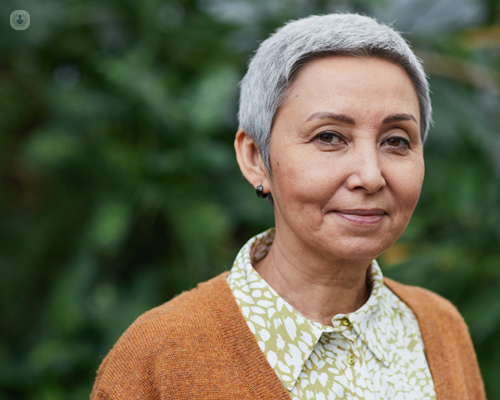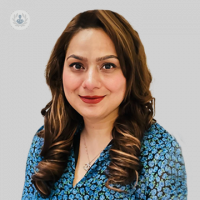Let's talk about menopause
Written by:Despite menopause affecting every woman around the world - except for those who had their ovaries removed before puberty - do we really discuss it enough?
Here to add her valuable expertise to this important women’s health conversation, by highlighting exactly what it is, the symptoms and what experienced advice she can offer, is leading endocrinologist and consultant physician Dr Sobia Arshad.

What is menopause?
Every woman goes through menopause between the age of 45 and 55 years. This occurs because of a decline in oestrogen levels; ovulation stops and women will eventually stop having periods.
If it happens below the age of 45 years, it's called early menopause and if it happens below the age of 40 years it's called premature ovarian failure.
Menopause is defined as not having periods for one year, but the symptoms of menopause may start five, 10 years, even longer before the actual menopause. That stage is called perimenopause.
What are the most common symptoms of menopause?
Oestrogen is a very important female hormone and its decline can cause lots of symptoms in women, ranging from:
- feeling very tired and lethargic, or not having the right amount of energy;
- inability to focus or concentrate (Women describe it as brain fog);
- sleep disturbances.
Headaches or migraines
Women who've never had migraines before may start having migraines, and the ones who had migraines before may notice the density and severity has increased.
Hot flushes
This is a very common symptom, and the most well-known one as well. A lot of women associate hot flushes with menopause, and if they've never had hot flushes some women believe they aren't going through menopause. I've had women in my clinic saying 'My period stopped three years ago', but I've never had menopause.' And I ask 'how?'
There are lots of symptoms; lack of interest in life, low mood, depression and anxiety, and lots of sexual problems. Women can also have urinary tract infections; the list is extensive. If you don't know that, you won't for the right help.
Is hormone replacement therapy a safe and effective option for menopausal symptom relief?
It's effective. Menopausal decline in female hormone leads to replacing the hormone, so you're solving the problem. We have enough research and data to prove its consistent effectiveness.
Safe? Yes, it is safe and hence it's recommended by NICE and by all doctors who are all entrusted with female health. A scare came from a small study years ago that showed there might be a slight increase in breast cancer with HRT. We have to remember that hormone replacement therapy has refined and improved massively over the years, and what's available now in the form of gel and patches haven't shown any increased risk of breast cancer. It's safe.
Are there any natural remedies or supplements that may alleviate menopausal discomfort?
There are millions of products available on the market and supplements over the counter. There's a term called ‘menowashing’, which means you can use the prefix 'meno' in front of any product, and you can double the price of it. The most popular forms are:
- Black Cohosh
- Soya
- Isoflavone
- St John's Wort
- Evening Primrose Oil
Others are flaxseed; the list is extensive.
The reason I can't recommend them as a complete therapy is due to a lack of evidence to give that they give consistent and qualitative results. If you want to use them as part of a healthy diet, as a supplement, then there's no harm in doing that.
What advice would you give to women suffering from menopause?
The advice I'd give all women is to talk about menopause; learn and understand menopause. It's a very important part of women's lives. It happens at the stage where they might be at the top of their careers as a CEO or company director. Furthermore, there could be a lot happening in their personal lives, in relationships and mid-life crisis.
It can be really overwhelming, but it's natural. Everyone goes through it and that doesn't mean it has to be painful and uncomfortable.
There are people who can listen and understand, that can offer you the right treatment. The first step is understanding, so read about it. It's 2023 and we need to get comfortable talking about women's health and menopause is natural; everyone goes through it. I also want to add: if hormone replacement isn't for you, there are other options like non-hormonal therapies such as:
- cognitive behavioural therapies;
- supplements (with your doctor's advice).
Although every woman goes through menopause, it's still a unique experience and one size doesn't fit all, so you need to have a personalised and tailored approach towards menopause treatment.
If you'd like to arrange an appointment with Dr Arshad to address your menopause concerns, you can do so via her Top Doctors profile.


